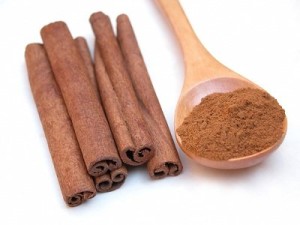Summer is finally here! Read on to enjoy tips on how to keep a fresh summer glow while protecting your skin and helpful tips to keep in mind while traveling!
How to Take Care of Your Skin This Summer!
 We are all looking forward to the sunshine and sun tanning. But it is easy to forget about the harmful effects of the sun. The same rays that tan us also age our skin, including wrinkles, fine lines and age spots. There is also the increased risk of skin cancer.
We are all looking forward to the sunshine and sun tanning. But it is easy to forget about the harmful effects of the sun. The same rays that tan us also age our skin, including wrinkles, fine lines and age spots. There is also the increased risk of skin cancer.
Skin cancer is the most common form of cancer among Canadians. With our thinning ozone layer that normally protects us from this UV radiation, the incidences of skin cancer is rising dramatically! So, we all really should think about protecting ourselves now, to prevent the damage from happening.
Here are the top 6 foods to add to your daily diet. They really work in protecting your skin from sun damage, wrinkles and cancer.
- Broccoli sprouts. An amazing study out of John Hopkins University found that when mice were fed broccoli sprouts twice a week for 17 weeks, a 70% reduction in the formation of skin tumors was found. So add broccoli sprouts to your diet! Sprinkle 1/2 cup daily on your salad or in a sandwich.
- Beta-carotene found in leafy greens and bright vegetables. Research shows that eating 5 servings of foods that contain Beta-carotene for 1 month is enough to protect your skin from sun damage. Foods high in beta-carotene include carrots, sweet potatoes, apricots, squash, pumpkin, cantaloupe, mangoes, dark leafy greens vegetables (kale, collard greens, spinach, leaf lettuce) and broccoli. Beta-carotene becomes most available to the body when vegetables are cooked, chopped or pureed.
- Tumeric has excellent antioxidant properties. Use in cooking and great in Indian dishes!
- Dark Chocolate. Choose chocolate with greater than 70% cocoa. Enjoy 2 squares/day.
- Lycopenes found in tomatoes and watermelons are excellent skin protectors.
- Fish Oil. These Omega 3 oils have strong anti-inflammatory properties and are great for skin appearance. Have 2 servings a week of wild salmon, snapper, cod, mackerel and sardines. Avoid larger fish such as tuna and halibut due to concerns with mercury levels.Get a head start on your summer protection now and focus on increasing antioxidants in the body to protect from sun damage.. one more thing, of course sun screen is a must with sun exposure. Health Canada recommends a SPF 15 minimum!
July promotion: Mention the newsletter and receive 15% off any Celazome skin care product!
Natural Travel Health Tips

With summer holidays just around the corner, we are quickly entering into travel season. Whether its traveling locally, camping or traveling abroad, there are many natural ways to ensure we have a great time and avoid getting sick. Traveling can leave us vulnerable to infections because now we are in a new environment, exposed to different insects, water, people and we do not have full control of cleanliness in our environment. Here are some favourite tips of Dr. Alibhai’s that she always makes sure to do before going away.
- Keep your immune system strong! This is your first defense. Start these nutrients and food sources 1-2 weeks before you travel or go camping.
- Vitamin A in the form of beta-carotene is an excellent way to boost our natural immune system. 1 tbsp of cod liver oil per day will provide about 5,000IU of Vitamin A. Do not take Vitamin A if you are pregnant.
- Vitamin D. There continues to be ongoing research demonstrating the profound immune boosting effects of Vitamin D. This supplement should be taken as the Vitamin D3 form and as a liquid. 2000IU is sufficient to boost our immune system. Sunlight is a great source of Vitamin D too!
- Good ol Vitamin C. 1000-2000mg a day is great for prevention, but get the pure ascorbic acid Vitamin C, not the chewable orange candy flavoured Vitamin C that contains sugar.
- Echinacea is an excellent immune stimulator. Star taking 1-2 caps a day 1 week before and during your trip.
- Treat cuts, burns and bruises…naturally! There are numerous natural ways to treat bites, burns and bruises. Here are some favourites:
- Aloe Vera gel liquid or capsules. Nothing heals a cut or soothes a burn like aloe vera gel.
- Tea tree essential oil. This is the best essential oil to use as an anti-bacterial agent to prevent infection and to treat insect bites. Use full strength or mix with a small amount of carrier oil, especially when using on children. It is essential to use high quality oils
- Arnica ointment or Traumeel homeopathic ointment is excellent for bruises, sprains and overall injuries. Do not use this on an open wound.
- Prevent stomach related illnesses. Getting a stomach related illness is the best way to ruin a vacation. Here are some tips on how to protect yourself from getting a nasty stomach virus!
- The best protection starts with the good bacteria in our lower intestine and colon. These “good bugs” keep our digestive tract clean and fights off harmful bacteria, viruses, fungus and parasites. Start your high quality pro-biotic one week before your trip and take everyday.
- Oregano oil. This oil is a strong anti-bacterial and anti-fungal agent. Take 2 drops of high quality oregano oil in a small amount of water every day.
- Grapefruit Seed Extract. This strong anti-bacterial agent is excellent to use either for prevention or at the first sign of a stomach problem. Take 2 drops diluted in water. NEVER use full strength as it will burn!
Herbs and Their Health Benefits
In a 2 part mini-series, we be discussing some interesting health benefits to our everyday kitchen spices and herbs that can do more than add a little flavour to your favourite dishes! This month, we focus on Fenugreek and Cinnamon.
It is becoming more mainstream knowledge that garlic has antiviral and anti-fungal properties and that ginger can soothe digestion and nausea. People are taking their health into their own hands using foods that are commonly found in their kitchens and getting great results. Many of our culinary spices have medicinal properties that were promoted for use in cooking by healers of long ago. Below is discussion of a handful of herbs that can be used to create delicious foods and have extra health benefits. The BBC website has an eclectic mix of recipes that are worth checking out. Follow the links at the end of each herb discussion, please send us an email at info@vitaliahealthcare.ca if you have feedback on any of these delicious looking recipes!
Fenugreek Trigonella foenumgraecum

An herb commonly found in Indian, Persian and Ethiopian dishes as a spice (the seed), vegetable and flavouring (dried or fresh leaves). In medicinal circles, fenugreek is used for gastrointestinal inflammation to soothe and reduce gastric upset. It also lowers blood sugar and blood levels of cholesterol making fenugreek an excellent diabetic herb. Nursing mothers rely on fenugreek to increase and promote breastmilk production and an Australian study completed in 2011 showed that men who took fenugreek extract for 6 weeks had an increased libido by 25%. The following link has more information and recipes on using fenugreek in cooking. http://www.bbc.co.uk/food/fenugreek
Cinnamon Cinnamomum species.

A tasty addition to your morning bowl of steel cut oats and baked goods, this herb has many properties of healing including lowering insulin resistance in diabetes and blood sugar regulation. It can be used as an antibacterial and anti-fungal agent and provides pain relief and decrease of excessive menstrual flow or other bleeding irregularities. Small amounts can be used to soothe digestive irritation and correct nausea and vomiting. Try adding a pinch of cinnamon to your daily routine.http://www.bbc.co.uk/food/cinnamon



